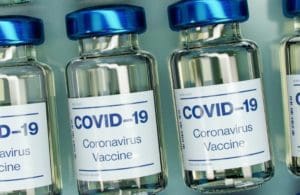
[Image courtesy of Wikipedia]
But AstraZeneca (LON:AZN) and Russia’s Sputnik-V lab, the Gamaleya Research Institute, are hooking up with the hopes that collaboration can spark COVID-19 breakthroughs.
In related news, Russian authorities recently announced that the Sputnik V vaccine’s efficacy is 96.5%.
AstraZeneca and the Russian lab will test the concept of heterologous boosting, in which different vaccines targeting the identical antigen are combined.
“Being able to combine different COVID-19 vaccines may be helpful to improved protection and/or to improve vaccine accessibility,” AstraZeneca said in a statement.
Each organization has a vaccine in Phase 3 trials that uses an adenovirus vector. Both could also play a role in vaccinating the world because adenovirus-vectored vaccines tend to be less costly to produce than those using newer technologies such as mRNA and lipid nanoparticles.
AstraZeneca, which collaborated with Oxford on the vaccine, has hinted at their vaccine candidate’s potential in developing countries. AstraZeneca plans on working with contract manufacturing organizations to boost its vaccine production.
Russia’s Sputnik V vaccine freeze-dried, sidestepping the need for ultra-cold storage during transit. Russian officials say they have received orders for 1.2 billion doses across more than 40 countries.
The U.K. government also plans to investigate the potential of combining viral-vector vaccines with an mRNA variant.
The Gamaleya Research Institute has also offered to provide its vaccine Sanofi and GlaxoSmithKline, whose joint vaccine was recently delayed — likely until the end of 2021.
Filed Under: clinical trials, Drug Discovery, Infectious Disease





Tell Us What You Think!
You must be logged in to post a comment.